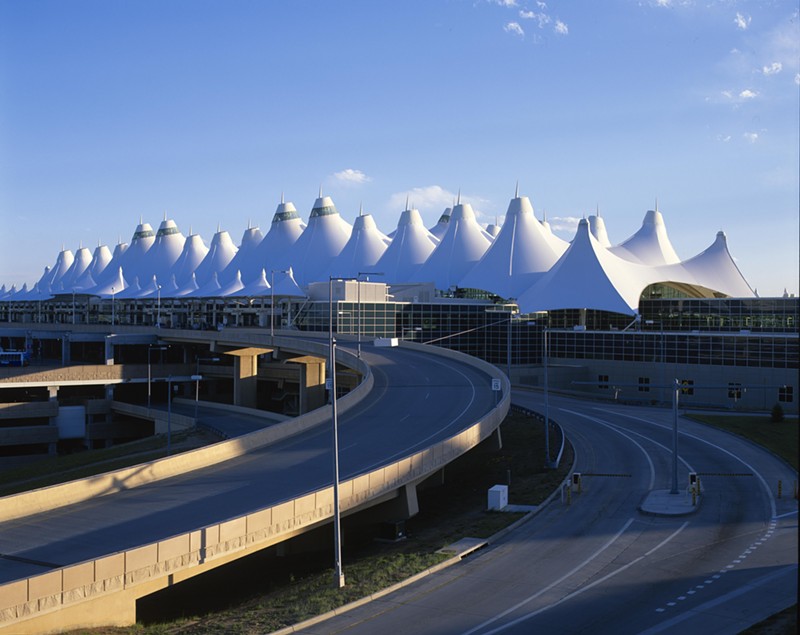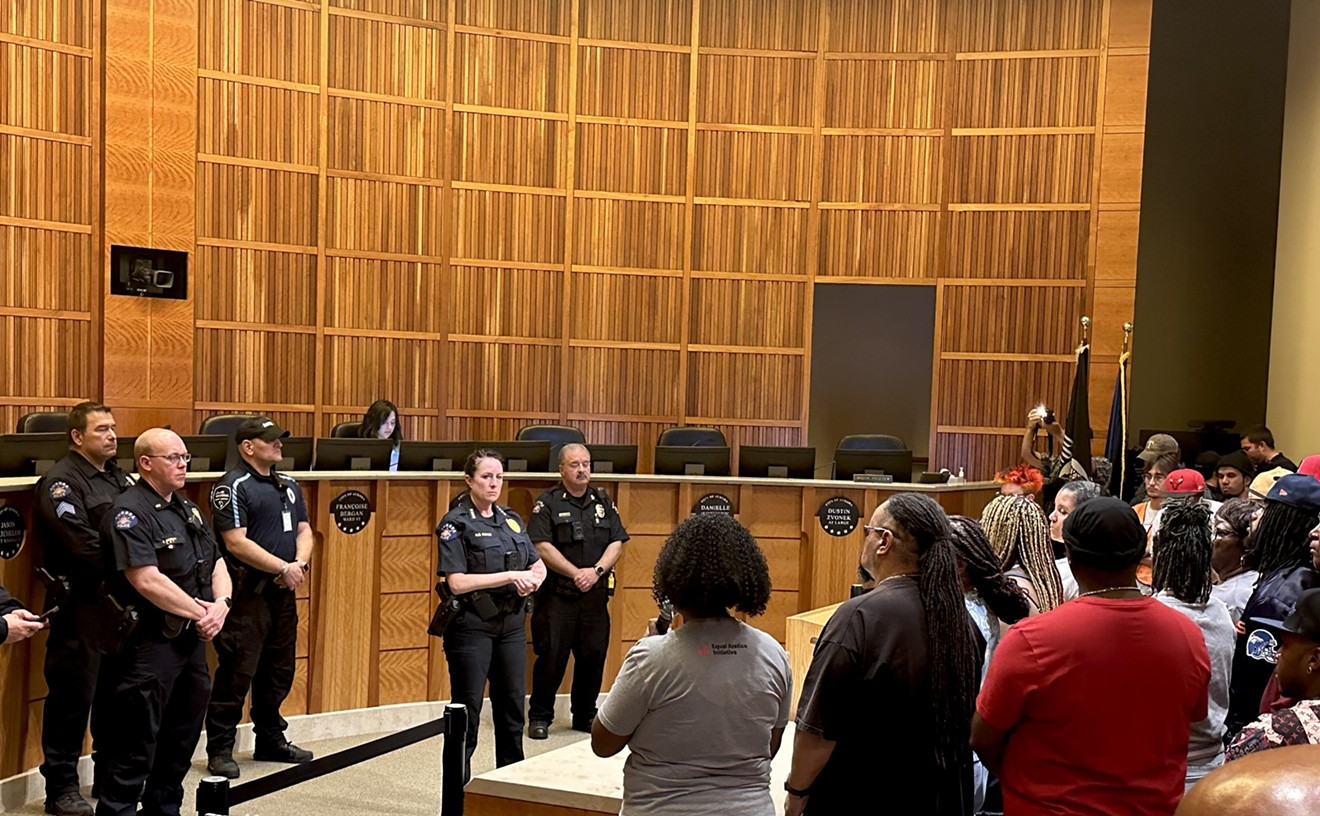According to airport sustainability manager David Fridland, preliminary numbers indicate that DIA processed 12,000 tons of trash in 2023. That's the equivalent of 6,000 large adult buffaloes and more bulk than the Eiffel Tower, which weighs just over 11,000 tons.
Of the 12,000 tons collected last year, nearly 21 percent was diverted from the landfill to recycling or composting. The city’s diversion rate as a whole in 2023 was 26 percent.
That 21 percent stat is the highest diversion rate in the airport's history. In 2022, it diverted 20 percent of its waste as the numbers bounced back from the pandemic low of just under 16 percent.
“Generally, we offer waste services — recycling, trash, compost — to all of our tenants at the airport,” Fridland says. “There are a few airlines that do it themselves with their de-planed waste, but for the most part everyone's participating. In that way, we have quite a bit of control and also visibility into all the waste streams to deal with contamination and making sure folks are following the rules.”
Waste services are included as a utility when companies sign up for a space at the airport. Along with its public-facing recycling, DIA offers plastic film collection and pallet recycling to tenants. It also does a lot of cardboard recycling, according to Fridland.
He credits the rebound in the airport’s diversion rate to its composting program, which operates behind the scenes in kitchens to make sure food scraps are turned into compost rather than trashed. The program started in 2018 but was put on pause in 2020.
“It was really people not wanting to touch the compost and worried about getting COVID,” Fridland says.
Some city staff also took early retirement at the time, which depleted the airport's sustainability team. But it's now back at 100 percent and working to help businesses at the airport focus on composting. It conducted a waste audit last October and found that about 60 percent of the waste at the airport is divertible: A little over 30 percent comes from organic materials that could be composted, and 27 percent of waste is recyclable.
The airport has a waste-hauling contract with Republic Services, which acquired GFL Environmental in June 2023. Denver City Council approved a five-year contract with GFL in August 2020 for $8,800,000 for trash, recycling and compost services at DIA.
Those services could expand because of the Waste No More measure approved by Denver voters in November 2022. That initiative requires businesses to provide composting and recycling services, mandates that construction waste be diverted, and puts a recycling and composting requirement in place at large events.
Under the ordinance, commercial buildings over 25,000 square feet — which would include the airport — were required to implement compost systems by June 2023. However, the city hasn’t yet begun enforcement, and instead formed a task force to figure out the best way to implement the ordinance. The task force suggested that large buildings be required to comply by January 2025.

Denver will get all businesses recycling and composting.
Chalabala/iStock
“A number of large facilities like DEN have recognized Denverites’ strong support for keeping organic and recyclable waste out of the landfill and have already started developing or even implementing plans for offering compost and recycling disposal options,” Gedeon says.
According to Fridland, the airport is waiting to see if it will need to make its composting program public-facing in addition to the public-facing recycling project it has had for years, “It's really hard to run a successful front-of-house composting program,” he says.
The airport knows it will need to update its recycling signage to comply with Waste No More. “Our current recycling signage is really nearly non-existent, so that's a place where we need to do some work,” he adds. “We've got that in our plan for this upcoming year to explore that and figure out how to get that done.”
Currently, the cans simply say "trash, paper, plastic bottle, aluminum can or glass," with no images as examples. If someone puts something in recycling that doesn't belong there, the entire bin is contaminated.
Aside from the public-facing composting question, Fridland says he believes the airport already complies with the rest of the Waste No More requirements, including the construction and demolition diversion element.
“We have a lot of construction projects at the airport, as you'd imagine, and we have a really, really active concrete and asphalt recycling yard,” Fridland says. Waste generated and diverted from construction isn't currently counted in the general airport waste and diversion rate calculation.
The airport is also kicking off a Zero Waste Valet Team that will send people across the facility with the goal of helping employees and businesses recycle and compost more effectively. It received a grant from the state’s Front Range Waste Diversion program to implement the team's work.
The team will not only transport recyclable and compostable materials to the proper receptacles, but also help make sure recycling and compost streams don't get contaminated with trash.
“It's so challenging to move material around at the airport, especially if you're an hourly employee, because you’re just trying to make your way through the day and get done on time. We're losing a lot of material just because there are barriers to recycling,” Fridland explains. “We really hope that not only will this increase our materials collected, specifically compost and cardboard, but also clean up the stream to keep things clean.”











